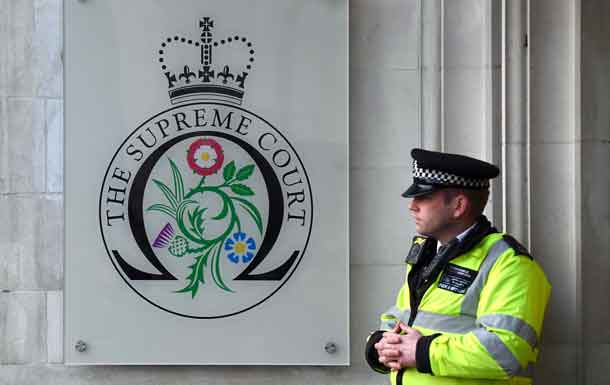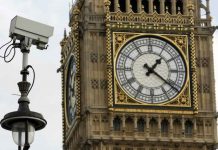

By Michael Holden and Estelle Shirbon
LONDON (Reuters) – Prime Minister Theresa May must give parliament a vote before she can formally start Britain’s exit from the European Union, the UK Supreme Court ruled on Tuesday, giving lawmakers who oppose her Brexit plans a shot at amending them.
By a majority of eight to three, the UK’s highest judicial body decided May could not use executive powers known as “royal prerogative” to invoke Article 50 of the EU’s Lisbon Treaty and so begin two years of divorce talks.
“The referendum is of great political significance, but the Act of Parliament which established it did not say what should happen as a result,” said David Neuberger, President of the Supreme Court.
“So any change in the law to give effect to the referendum must be made in the only way permitted by the UK constitution, namely by an Act of Parliament.”
However, the judges did remove one major potential obstacle for the British government, saying May did not need the approval of the UK’s devolved assemblies in Scotland, Wales and Northern Ireland before triggering Brexit.
May has said she intends to invoke Article 50 before the end of March but the ruling means she must now first bring forward urgent legislation before she can go ahead.
In its ruling the court said such a bill, which is likely to be put to parliament either later this week or next week, could be a “very brief statute”.
That opens up the Brexit process to scrutiny from lawmakers, the majority of whom had wanted to stay in the EU. However, the main opposition Labour Party said it would not block Brexit although it would try to amend the legislation.
“Labour will seek to build in the principles of full, tariff-free access to the single market and maintenance of workers’ rights and social and environmental protections,” said party leader Jeremy Corbyn.
Media reports have suggested that up to 80 Labour lawmakers (MPs) in the 650-member House of Commons lower chamber would ignore Corbyn and vote against triggering Article 50, while the small Liberal Democrat Party said it would oppose Brexit unless there was a second referendum on the final deal.
Meanwhile, the Scottish National Party, which has 54 MPs, vowed to put forward 50 “serious and substantive” amendments. However, the opponents of Brexit are still likely to be some way short of the numbers needed to either delay May’s timetable or to stop it.
The upper chamber, the House of Lords, could also seek to amend the plans but ministers are confident that unelected peers would not try to stop Britain leaving the EU.
BREXIT PLANS UNCHANGED
May herself said the court’s decision did nothing to change the path of Brexit.
“The British people voted to leave the EU, and the government will deliver on their verdict – triggering Article 50, as planned, by the end of March,” her spokesman said.
Last week May set out her stall for negotiations, promising a clean break with the world’s largest trading bloc as part of a 12-point plan to focus on global free trade deals, setting a course for a so-called “hard Brexit”.
Some investors and those who backed the “remain” campaign hope that lawmakers, most of whom wanted to stay in the EU, will force May to seek a deal which prioritises access to the European single market of 500 million people, or potentially even block Brexit altogether.
Sterling initially rose on the news that the government had lost its appeal, but it then fell over half a cent to hit a day’s lows against the dollar and euro after the ruling that the devolved assemblies did not need to give their assent.
By 1044 GMT it had trimmed some of those losses and stood at $1.2473, down 0.5 percent on the day.
Those who campaigned for Britain to leave the EU said the vote on triggering Brexit should be a mere formality.
“Any attempt to delay the Brexit process after backing the previous vote would be an unforgivable betrayal of the British people,” said Richard Tice, co-chairman of the Leave Means Leave campaign. “The Lords should also follow suit; any delay by them would ensure their abolition.”
(Additional reporting by William James, Kylie MacLellan and Alistair Smout; Editing by Guy Faulconbridge and Pravin Char)






